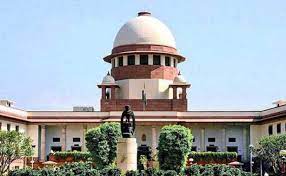

By Sunil Garodia
First publised on 2022-05-19 07:36:02
In India's
federal structure, the governor is a constitutional head who is bound by the
aid and advice of the elected state government. But in reality, the role of the
governor is increasingly being questioned as they are being viewed as 'agents' of the Central government who try and impede the working of the state
government by 'misusing' their powers. The Supreme Court has, in the A G Perarivalan
judgment, called the governor "but a shorthand expression for the state
government" and had said that "the advice of the state cabinet is binding on
the governor in matter relating to commutation/remission of sentences under
Article 161".
The court
also took a stern view of the "non-exercise of power or inextricable delay in
exercise of power" by the governor and categorically stated that such delays on
taking a decision in such matters make them amenable to judicial review. Since
the governor reports to the Centre, the role of the Central government is also
under the cloud in such matters as in the instant case, the Centre was resisting
the state government's decision to release the convicts held for assassinating
former Prime Minister Rajiv Gandhi. It could be held that the governor was not
taking any action on the state governmentâs advice as he was directed not to do
so by the Central government.
The
judgment is clear on these points. It has clearly said that the governor was at
fault for not acting on the state cabinet's advice made for remission under the
powers granted to it under Article 161. It also faulted the governor for
referring the same to the President as there is no provision in the
Constitution for the governor to make such a reference.
There can
be some genuine disputes between the Centre and the states on the reading of
the law but when something is as crystal clear as the powers of the state
government under Article 161, the federal structure is weakened if the Centre,
through the governor, tries to put hurdles in the implementation of the
decisions taken by an elected government in the state. Hopefully, the present
judgment ensure that governors act as per law and without delay.











